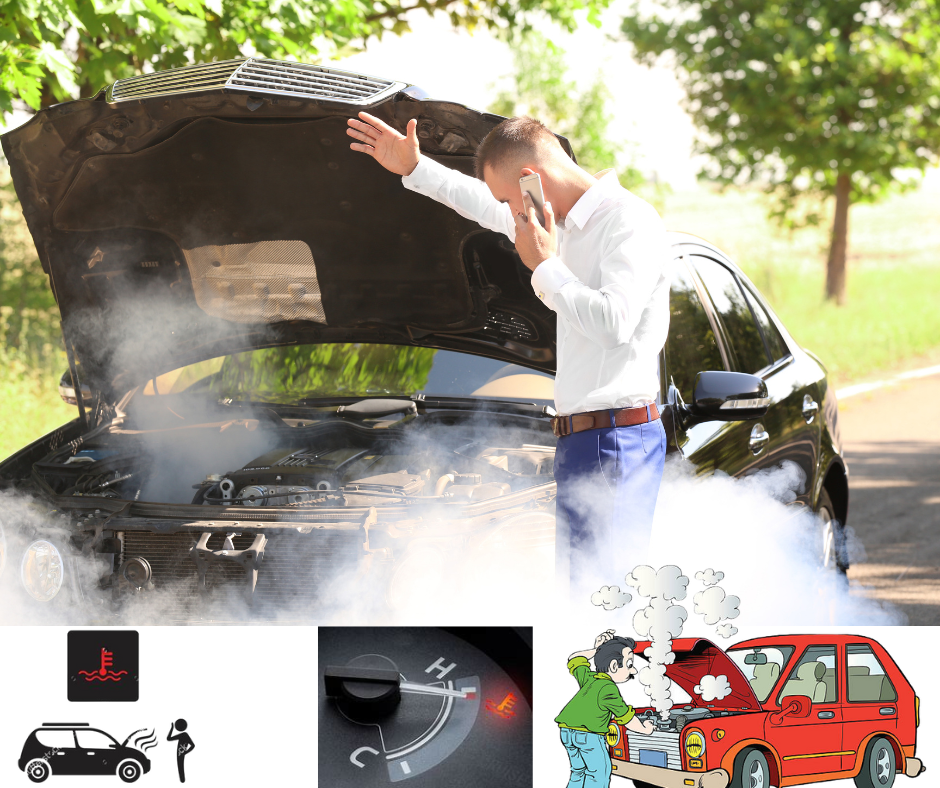How to Prevent Engine Overheating: Essential Tips

Engine overheating is one of the most common and frustrating car problems. Learn how to prevent it with these essential tips.
Understanding the Causes of Engine Overheating
Engine overheating can be caused by a variety of factors. One common cause is a malfunctioning cooling system, which can fail due to leaks, blockages, or broken components. Another frequent culprit is low coolant levels, which can result from a leak or simply from not topping off the coolant as needed.
Other potential causes include a failing thermostat that doesn’t open to allow coolant to flow through the engine, a broken water pump that fails to circulate coolant, or a damaged radiator that can’t dissipate heat effectively. Understanding these causes can help you take preventative measures to avoid overheating.
Regular Maintenance Checks
Regular maintenance checks are critical for preventing engine overheating. Make sure to follow your vehicle’s maintenance schedule, which typically includes checking the coolant levels, inspecting the radiator and hoses for leaks or wear, and ensuring the thermostat and water pump are functioning properly.
It’s also important to have your engine oil checked and changed regularly, as old or low oil can cause the engine to overheat. Regularly inspecting and maintaining your car’s cooling system can help you catch potential issues before they lead to overheating.
Importance of Coolant and How to Check It
Coolant plays a crucial role in regulating your engine’s temperature. It not only absorbs heat from the engine but also prevents corrosion and lubricates moving parts. To check your coolant, ensure the engine is cool before opening the radiator cap or coolant reservoir.
Look for the coolant level indicator on the reservoir; it should be between the 'min' and 'max' lines. If the level is low, add the correct type of coolant as specified in your vehicle’s manual. Also, inspect the coolant’s color; it should be vibrant and free of debris. If it appears rusty or dirty, it’s time for a coolant flush.
Signs Your Engine is Overheating and What to Do
Common signs of an overheating engine include a rising temperature gauge, steam coming from under the hood, a strange smell (often sweet or burnt), and the check engine or temperature warning light turning on. If you notice any of these signs, it’s crucial to act immediately to prevent serious damage.
Turn off the air conditioning and turn on the heater to help dissipate the heat. Pull over to a safe location, turn off the engine, and allow it to cool before opening the hood. Check the coolant level and add more if necessary, but only if the engine has cooled down. If the problem persists, seek professional help.
Tips for Driving in Hot Weather
Driving in hot weather can increase the risk of engine overheating. To mitigate this risk, make sure your cooling system is in good condition before heading out. Avoid driving during the hottest part of the day if possible, and try to park in shaded areas to keep your car cool.
Use your air conditioning wisely, as it can put additional strain on the engine. Keep an eye on the temperature gauge and be prepared to take breaks to let the engine cool down if necessary. Carry extra coolant and water in your car in case of emergencies.

 Loading..
Loading..